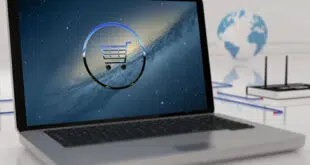MusicRebellion.com Inc., which operates a 3-year-old Web site selling song downloads, is getting set to adopt an updated version of a micropayments system to help handle growing volume. The Web merchant, which has been using Peppercoin Inc.'s original processing system, introduced last year, says the micropayment method accounts for between 8% and 10% of sales, while total downloads are undergoing explosive growth. Peppercoin earlier this week unveiled version 2.0 of its processing system for micropayments (under $5) and small-value transactions (under $20), saying it would become commercially available in the third quarter. The new version, which offers a payments gateway, processing module, and Web-based customer self-service module, does away with the original program's requirement that users open accounts and download software from Peppercoin (Digital Transactions News, June 28). “That's huge,” says Rex Fisher, chief operating officer for MusicRebellion, a subsidiary of Indianapolis-based Digonex Technologies Inc. “That takes a lot of the hassle away from the user. Getting that piece of software to the customer and educating them on it was a real challenge.” Fisher says he is reviewing integration issues now and will bring the new system live soon. He says he prefers the micropayments system to PayPal, which his site also accepts but which he regards as too expensive, even at new, reduced pricing the eBay Inc. unit rolled out last December specifically for online music (Digital Transactions News, Dec. 8, 2003). Buyers from MusicRebellion can also use prefunded accounts they set up with the retailer. PayPal accounts for about 7% to 10% of MusicRebellion's transactions, Fisher says, but the merchant is questioning whether to continue accepting it. “[PayPal] is not profitable for us,” says Fisher. “It's not that we want to limit the options to our customers but at the same time we have to look at whether we're providing a good customer experience in a profitable way.” PayPal charges 2.5% plus 9 cents for songs, down from its ordinary pricing of 2.2% plus 30 cents or 2.9% plus 30 cents. The processor last month announced new pricing across the board effective in August that introduces additional tiers tied to volume (Digital Transactions News, June 17). Peppercoin charges a flat rate of 7 cents per transaction for high-volume merchants, up to 10 cents as volume declines. It says Peppercoin 2.0's transaction pricing will not change, though there will be a licensing fee for merchants and acquirers that want to run the system themselves rather than use Peppercoin's hosting service. Song downloads, which MusicRebellion sells for prices as low as 88 cents, have been growing at a head-snapping rate for both the site and generally in the industry. MusicRebellion sold 100,000 downloads in the first quarter, 20 times the sales in the year-ago period, and Fisher expects volume in the fourth quarter to be about 10 times his current quarterly sales. “The legal alternative for downloadable [content] is starting to become something the consumer is grabbing a hold of,” says Fisher, who adds MusicRebellion is an old hand at this already. “We began retailing legal music downloads back when it was witchcraft,” he jokes. Not all online merchants are sold on micropayments, however. Lonny Paul, director of e-commerce for TigerDirect Inc., says fees need to be in the 2% to 4% range to appeal to him. Even at high volume, a Peppercoin transaction would cost 7% on a 99-cent sale. The Miami, Fla.-based online retailer of consumer electronics, which also operates brick-and-mortar stores, is selling ring tones in a marketing agreement with New York-based Zingy Inc., which relies on prepaid accounts and cellular-carrier billing. “The biggest challenge with micropayments is that the processing costs are outlandish,” says Paul.
Check Also
The Zelle App’s Role May Be Changing, But It Is Not Going Away, the Network Says
Zelle, the peer-to-peer payments service from Early Warning Services LLC, took steps late Thursday to …





